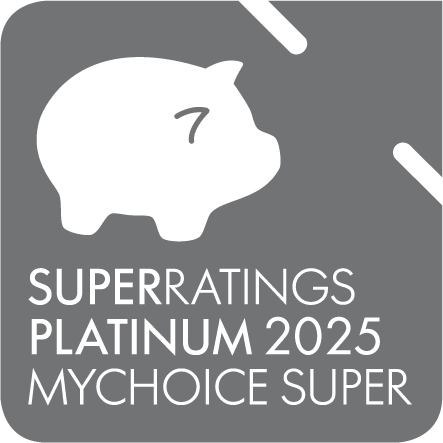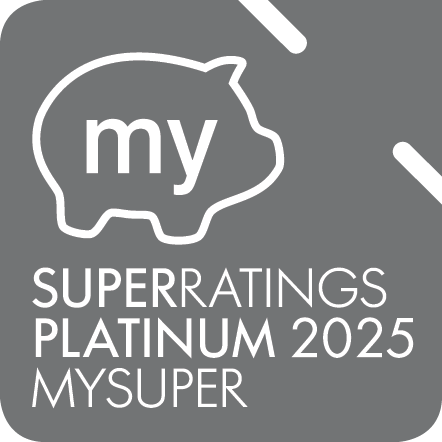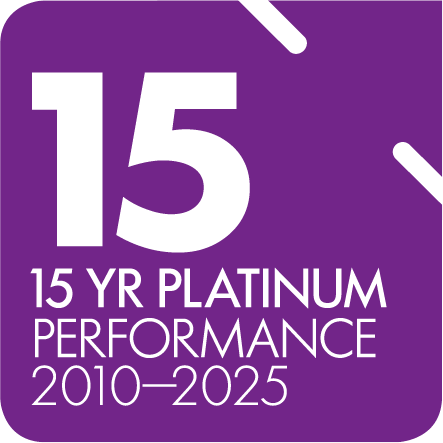| We acknowledge all First Peoples of the beautiful lands on which we live and work, and their enduring knowledge and connections to Country. We honour the wisdom of and pay respect to Elders past and present. |  |  |

Whether you’re just entering the workforce or thinking about retirement, a qualified financial planner can help you save money, grow your wealth and plan a better future.
And while that sounds good on paper, there’s still a lot of uncertainty around the financial planning processes, and what it actually involves.
We sat down with one of our planners to provide a step-a-step guide and answer your questions.
Let’s start with the basics, how can a planner help people save money and improve their financial situation?
I know it sounds obvious, but a financial planner’s job is to help people improve their financial position. Now that means different things to different people. Some of the areas we can assist with include:
- Reducing your tax obligations
- Providing detailed investment advice, both inside and outside super
- Finding the most appropriate insurance cover for you and your family
- Maximising Centrelink entitlements by structuring your investments appropriately.
- Providing advice in the lead-up to retirement and helping to transition through this phase.
- Identifying retirement strategies which provide a regular income stream, minimise tax, and maximise any Centrelink benefits that may be available.
What happens when someone books an initial appointment? What’s the process from there to having a full financial plan?
1. If you request an appointment, one of our team members will call you back to book a suitable time to see one of our financial planners.
2. There is no charge for the initial appointment. It can be done in person or remotely via phone or video.
3. During the initial appointment the adviser will talk to you about your goals and current position and outline strategies that may be of interest or benefit. These initial discussions don’t include ‘personal advice’ (i.e. “you should do this”). This is because the law requires that any personal advice must be provided in writing as part of a full financial plan.
4. After your initial appointment you can choose to proceed with a full financial plan. Please note that you don’t have to proceed any further, and many people are simply happy to have a discussion or learn how things work.
5. If you do decide to proceed and request a financial plan, the adviser will ask you for further info. They will then start preparing a Statement of Advice (SOA). This is a detailed summary of your current position, their recommendations, and the benefits and risks of these recommendations. This is detailed, personalised document. It’s essentially a deep dive into your finances and future recommendations. An SOA will take a number of weeks to prepare.
6. Once the SOA is completed it will be sent to you, and our admin team will arrange a time for you to go through it with your financial planner. During this appointment, the adviser will go through the financial plan step-by-step and answer any of your questions. You can implement all the recommendations or choose which ones to proceed with. Either way, the planner will help you with the paperwork and setting-up any accounts or products you want to use.
What are people getting for their money? Talk us through the details of a Statement of Advice and explain what’s included.
A typical financial plan (also known as a Statement of Advice or SOA) will be approximately 70 pages long and will include the following:
- A detailed summary of your goals and objectives (both short term and long term)
- A detailed summary of your current financial position
- A summary of our recommendations and a flow chart helping to summarise the major recommendations
- Each individual recommendation, such as a super contribution, debt repayment strategy, Centrelink recommendation, etc. Each of these strategies will have a detailed explanation, including the implications for your cashflow, as well as any alternative strategies that were considered and why these were not recommended.
- Detailed investment modelling showing the consequences of our advice to your overall investment structure, including exposure to different asset classes.
- Full disclosure of any fees payable for the advice or any investment products. This includes a comparison with any products that we recommend replacing – such as a rollover from another super fund, or an external investment, such as a managed fund.
- Details of the financial modelling that we have used, which shows the next 10 years of your financial position included estimated cashflow, taxation, superannuation balances and assets and liabilities.
- An authority to proceed section where you can decide which parts of the advice you’d like to proceed with.
Do you have any example of how you’ve helped people in different life stages improve their finances?
In one case we showed a member that by withdrawing $290,000 from his super and contributing it to his wife’s super he would become eligible for the Age Pension. This saw him qualify for $441 per fortnight ($11,468 p.a.) in Age Pension entitlements, where previously he didn’t receive anything.
In another instance we helped a member save his adult children nearly $50,000 in estate planning taxes via a re-contribution strategy.
We were also able to save a member $8,000 in taxes after he was made redundant via a concessional contribution strategy.
What should people look for when choosing a financial planner?
There are a number of things to consider. Firstly, their qualifications, their area of expertise, and the business they are affiliated with, e.g. bank, an industry superannuation fund, etc.
You also need to look at their fee structure, and the reputation of the business they work for.
And just as importantly, their approach to financial advice. During your initial appointment you should be confident that they can provide relevant information and listen to you, not just give you a sales pitch.
If you’re ready to talk to someone about your financial future please give us a call on 1800 065 753 or visit our financial planning page to book an appointment.
Issued by Togethr Trustees Pty Ltd ABN 64 006 964 049, AFSL 246383 ("Togethr"), the Trustee of Equipsuper ABN 33 813 823 017 ("Equip Super"). The information contained is general advice and information only and does not take into account your personal financial situation or needs. You should consider whether this information is appropriate to your personal circumstances before acting on it and, if necessary, you should seek professional financial advice. Where tax information is included, you should consider obtaining taxation advice. Before making a decision to invest in Equip Super, you should read the Product Disclosure Statement (PDS) and Target Market Determination (TMD) for the product which are available at equipsuper.com.au. Financial advice may be provided to members by Togethr Financial Planning Pty Ltd (ABN 84 124 491 078 AFSL 455010) – a related entity of Togethr. Past performance is not a reliable indicator of future performance.







